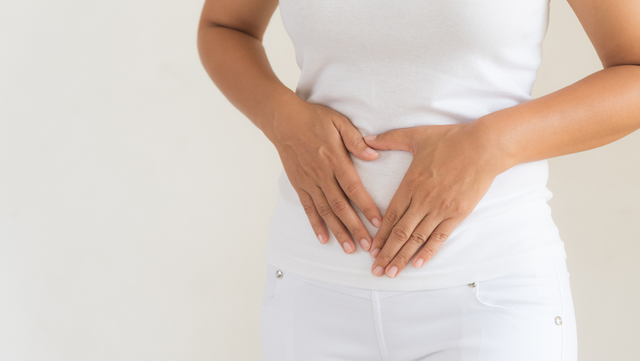PMS is like a rollercoaster ride you didn't sign up for, complete with emotional loops and hormonal drops.
As women, we're all too familiar with the monthly mood swings, bloating, and fatigue, it can be a challenging time of the month. What many women may not realize is that PMS symptoms can change and, for some, even intensify as they age. Why does this happen? And what can you do to manage PMS as you navigate the various stages of life?
Let’s dive in.
PMS: A Familiar Foe
For most women, PMS starts during their teens or early twenties. It often involves a combination of physical and emotional symptoms that typically occur a week or two before menstruation. Common symptoms include bloating, breast tenderness, mood swings, irritability, fatigue, and cravings.
The Unwelcome Surprise: Worsening PMS
As women age, they might expect certain things to change—gray hairs, wrinkles, or even a shift in metabolism. But one unexpected change can be the worsening of PMS symptoms. Here's why it happens:
- Hormonal Shifts: Hormones play a pivotal role in the regulation of the menstrual cycle. As women get older and approach perimenopause, the balance of hormones, particularly estrogen and progesterone, can fluctuate more dramatically. These hormonal shifts can contribute to increased PMS symptoms.
- Stress Accumulation: Over the years, women often accumulate more responsibilities, whether in their careers, families, or personal lives. This added stress can exacerbate PMS symptoms. Stress has been linked to the intensification of both physical and emotional PMS symptoms.
- Lifestyle Changes: As women age, their lifestyles may evolve. Dietary habits, exercise routines, and sleep patterns can all impact PMS symptoms. Poor diet, lack of physical activity, and inadequate sleep can exacerbate symptoms.
- Underlying Health Conditions: Age can bring about changes in health. Conditions like polycystic ovary syndrome (PCOS) or endometriosis, which may have been present but undiagnosed earlier in life, can become more symptomatic and worsen PMS symptoms.
Managing Worsening PMS
While the prospect of worsening PMS symptoms may sound daunting, there are strategies to help you manage and mitigate these challenges as you age:
- Nutrition: Maintain a balanced diet rich in whole grains, fruits, vegetables, and lean protein. Reduce sugar, caffeine, and alcohol intake, as they can exacerbate PMS symptoms.
- Exercise: Regular physical activity can help alleviate PMS symptoms by reducing stress and improving mood. Aim for at least 30 minutes of exercise most days of the week.
- Stress Management: Practice stress-reduction techniques like meditation, yoga, or deep breathing exercises to keep stress levels in check.
- Hormone Therapy: For some women, hormone therapy prescribed by a healthcare provider may help balance hormone levels and alleviate severe PMS symptoms.
- Consult a Healthcare Provider: If your PMS symptoms worsen significantly with age or if they interfere with your daily life, consult a healthcare provider. They can help rule out underlying medical conditions and recommend appropriate treatments.
- Keep a Symptom Diary: Tracking your symptoms can help you identify patterns and triggers. This information can be invaluable when discussing treatment options with your healthcare provider.
While it may be disheartening to realize that PMS symptoms can worsen as you age, it's essential to remember that you're not alone in this journey. Many women experience similar challenges, and there are strategies and treatments available to help you manage and mitigate the impact of PMS on your life.
As you navigate the changes that come with age, don't hesitate to seek additional ways to ensure your comfort and well-being during this time of the month. One practical method to get you through your PMS hellfire is by subscribing to our curated PMS Support Kit, which is designed to treat a variety of PMS symptoms including cramps and mood swings.
Mentioned in this article
More stories

BATTLING PMS FATIGUE AT WORK

